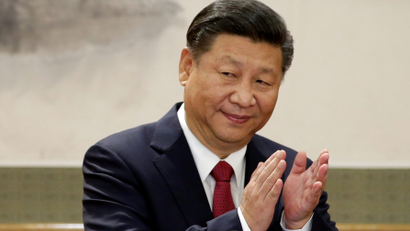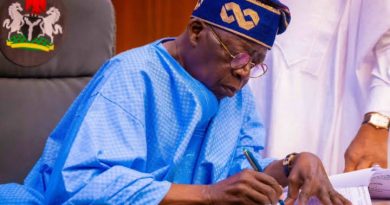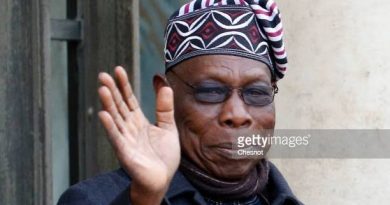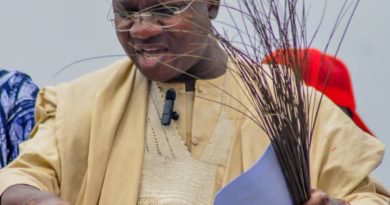Taiwan Separatists: Swimming Against The Tide Of History, By Charles Onunaiju.
In a report he delivered to the 20th National Congress of the Communist Party of China, (CPC) General Secretary Xi Jinping was plainly unequivocal that “Taiwan is China’s Taiwan. Resolving the Taiwan question is a matter for the Chinese, a matter that must be resolved by the Chinese. We will continue to strive for peaceful re unification with the greatest sincerity and the utmost effort, but we will never promise to renounce the use of force, and we reserve the option of taking all measures necessary”.
The General Secretary emphasized that, “this is directed solely at the interference by outside forces and the few separatists seeking “Taiwan Independence” and their separatist activities; it is by no means targeted at our Taiwan compatriots”.
Since 1949, when the rump of the Kuomintang or Nationalist Party (KMT) senior political and military officials fled the mainland to the Taiwan Island following their defeat in the Chinese Civil war, the clique of the fleeing KMT has consistently maintained that they represent the whole of China. Conspiring with Western forces, especially the United States of America, they illegally occupied the seat of China at the United Nations until 1971 when the United Nations iconic resolution 2758 which “Recognizing that the representatives of the government of the People’s Republic of China are the only lawful representatives of China to the United Nations and that the People’s Republic of China is one of the five permanent members of the security council, “decides to restore all its rights to the People’s Republic of China and to recognize the representatives of its government as the only legitimate representatives of China to the United Nations, and to expel forwith the representatives of Chiang Kai – Shek from the place which they unlawfully occupy at the United Nations and in all the organizations related to it”.
The was broadly speaking the political and legal infrastructure of the Universal consensus on the One China Principle that has become the core diplomatic practice of almost, all the countries in the world who have articulated the One China policy in their respective foreign policies.
In this context, the Taiwan question is strictly China’s internal affairs and the “1992 consensus” with its connotations that Taiwan and the mainland both belong to one and the same China, is a clear roadmap which points to the historical inevitability of reunification, an important component of “the wheel of history rolling on, toward reunification and rejuvenation of the Chinese nation”, as General Secretary Xi Jinping put it in the report to the 20th National Congress of theCommunist party of China, CPC.
Notwithstanding the historical trend of steady progression to China’s national reunification splittistelements motivated by desperate political ambitions hold on, to the illusions of “Taiwan Independence”, against the will of their compatriots both in the main land and the Taiwan Island. The reckless gamble of Mr. Lee Teng – hui, when he granted an interview to a German radio station, Dentche Welle on July 9th 1999 and to the surprise of many for the first time, sought a revisionist redefinition of relations between the mainland and Taiwan as “between countries, at least special reactions between two countries”. With this he abandoned the Taiwan authorities previous stance of the two sides of the straits as “two equal political entities”. Mr Lee Teng – hui outright splittist and separatist maneuverings which flew in the face of the “1992 consensus” was widely denounced for stoking crises and instability in the country and the region coming almost against the background of the successful return of Hong Kong and Macao special Administrative regions to the sovereignty of the People’s Republic China in 1997, under the creative and widely praised framework of “One country, two systems”. Lee Teng Hui poisonous chalice was taken up as the provocative mantra of a tiny clique of ambitious politicians, especially in the then newly formed Democratic progressive (DPP). To this day, this clique who have continuously and brazenly abused the sensibilities of their compatriots across the straits to make spurious grandstanding of “Taiwan Independence” in the collaboration with hostile external forces but stop short of actually carrying it out with the full knowledge of the dire implication, arising from any such gamble. China has grown both strong and prosperous, a condition that strengthens national reunification and therefore, separatist forces with hostile external forces collaborators, faces the existential dilemma of lifting the hard rock of “Taiwan Independence” and precipitously dropping on their feet or finding accommodation to the cause of national reunification, a broad shared value that defines Chinese patriotism and the accompanying march to their national rejuvenation.
Mr. Onunaiju is foreign affairs commenter and is based in Abuja.




